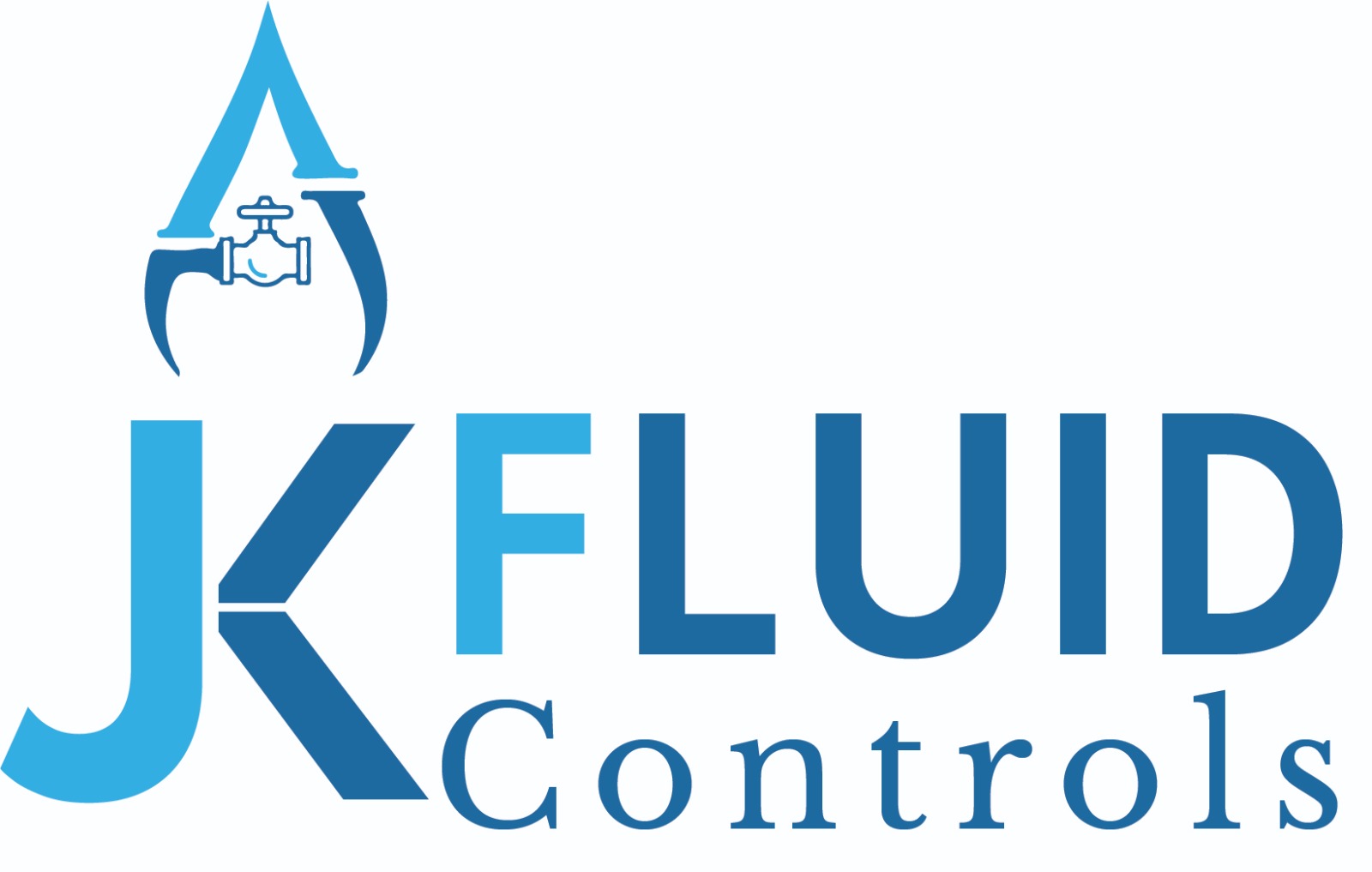Our Products
Flow Control Products, Automation and Accessories Valve
JK Fluid Controls
10 years of experience in valve
Secure Shopping
CERTIFIED BY AUTHORITIES
Largest Selection
OF TOP QUALITY PRODUCTS
Flow Control Products, Automation and Accessories Valve
GATE VALVE
A gate valve is a linear-motion valve used to start or stop fluid flow, featuring a gate-like disc that moves perpendicular to the flow. It’s ideal for on/off control, offering minimal pressure drop when fully open. Common types include:
- Rising Stem: Stem moves up/down with the gate, indicating valve position.
- Non-Rising Stem: Stem rotates without moving vertically, suitable for tight spaces.
- Solid Wedge: Most common, durable for high-pressure/temperature applications.
- Flexible Wedge: Adjusts to seat alignment, reducing thermal binding.
- Split Wedge: Self-adjusting for uneven sealing surfaces.
Gate valves are widely used in oil, gas, and water systems.
BUTTERFLY VALVE
A butterfly valve controls flow using a rotating disc (vane) mounted on a spindle. Compact and lightweight, it’s ideal for quick operation and low-pressure applications. Types include:
- Resilient Seat: Rubber-lined seat for tight sealing in water systems.
- High-Performance (Double/Triple Offset): Metal seats for high-pressure/temperature applications.
- Wafer/Lug Style: Fits between flanges or bolted directly.
Manual: Operated via hand lever, gearbox, or handwheel for smaller systems.
Motorized: Automated with electric, pneumatic, or hydraulic actuators for remote control.
Butterfly valves are versatile, used in HVAC, water treatment, and industrial processes.
BALL VALVE
A ball valve uses a rotating ball with a bore to control flow. It’s durable, offers tight sealing, and is ideal for on/off or throttling applications. Types include:
- Full Bore: Ball bore matches pipe diameter, minimizing pressure drop.
- Reduced Bore: Smaller bore, used where flow restriction is acceptable.
- Jacketed: Insulated for temperature-sensitive fluids.
- Motorized: Automated with electric/pneumatic actuators for remote control.
- Non-Motorized: Operated manually via lever or handwheel.
Applications: Oil/gas, chemical, water treatment, and HVAC. Ball valves are versatile, reliable, and suitable for high-pressure/temperature systems.
CHECK VALVE
Check Valves: Ensuring One-Way Flow with Reliability
A check valve is an essential component in fluid systems, designed to allow flow in one direction while preventing backflow, ensuring system efficiency and protection. These valves operate automatically without external control, making them a reliable choice for various industries.
Types of Check Valves:
✅ Swing Check Valve – Ideal for low-pressure applications, featuring a hinged disc for smooth operation.
✅ Lift Check Valve – Uses a piston or ball for precise sealing in high-pressure systems.
✅ Ball Check Valve – A simple, efficient design suitable for slurry and viscous fluids.
✅ Wafer Check Valve – Compact and lightweight, perfect for space-saving installations.
✅ Dual Plate Check Valve – Equipped with two spring-loaded plates for enhanced sealing and durability.
Material of Construction (MOC):
🔹 Metals: Cast Iron, Carbon Steel, Stainless Steel, Bronze
Non-Metals: PVC, PP, PTFE for corrosion-resistant applications
Applications:
✔ Water Supply & Wastewater Treatment
✔ Oil & Gas, Petrochemicals
✔ Power Plants & HVAC Systems
✔ Pharmaceutical & Chemical Industries
Pneumatic Valves: Precision Control for Air & Gas Systems
Pneumatic valves are essential components in air and gas control systems, regulating the flow, pressure, and direction of compressed air or gases. They ensure efficient automation and system performance in various industrial applications.
Types of Pneumatic Valves:
✅ Directional Control Valves – Manage airflow direction (e.g., 2/2, 3/2, 5/2-way valves).
✅ Flow Control Valves – Regulate airspeed and volume in pneumatic systems.
✅ Pressure Control Valves – Maintain stable pressure levels for safe operation.
✅ Shuttle Valves – Allow two pressure sources to control a single output.
✅ Solenoid Operated Valves – Electrically controlled for precise automation.
Material of Construction (MOC):
🔹 Metals: Stainless Steel, Brass, Aluminum for durability
Non-Metals: PVC, PTFE for corrosion resistance
Applications:
✔ Manufacturing & Automation
✔ Food & Beverage Processing
✔ Oil & Gas, Petrochemicals
✔ Medical & Pharmaceutical Equipment
Premium Fittings for Reliable Connections
We offer a wide range of high-quality fittings designed for secure and leak-proof connections in various industrial applications. Our fittings ensure durability, efficiency, and compatibility with different piping systems.
Types of Fittings We Supply:
✅ Pipe Fittings – Elbows, Tees, Reducers, Couplings, Nipples
✅ Tube Fittings – Compression, Ferrule, Push-to-Connect, Quick Release
✅ Hydraulic Fittings – High-pressure adapters, Hose fittings, Flare fittings
✅ Pneumatic Fittings – Push-in, Barbed, Threaded, Swivel fittings
✅ Flanges & Adapters – ANSI, DIN, JIS standard flanges and connectors
Material of Construction (MOC):
🔹 Metals: Stainless Steel, Carbon Steel, Brass, Copper, Aluminium
Non-Metals: PVC, PP, PTFE, Nylon for corrosion-resistant applications
Globe Valve: Precision Flow Control for Industrial Use
A globe valve is a linear motion valve designed to regulate, start, or stop fluid flow. It features a spherical body with a movable plug (disc) that presses against a seat to control the flow. Unlike gate valves, globe valves offer precise throttling and better flow regulation, making them ideal for applications requiring accurate control.
Key Features:
✔ Excellent throttling and flow control
✔ Tight sealing for minimal leakage
✔ Available in various pressure and temperature ratings
✔ Suitable for both manual and automated operation
Types of Globe Valves:
🔹 Tee Pattern Globe Valve – Standard type, best for high-pressure applications.
🔹 Angle Globe Valve – Allows 90-degree flow direction change with reduced pressure drop.
🔹 Wye Pattern Globe Valve – Lower flow resistance for energy efficiency.
Material of Construction (MOC):
✔ Metals: Cast Iron, Carbon Steel, Stainless Steel, Bronze
✔ Non-Metals: PVC, PTFE for chemical resistance


